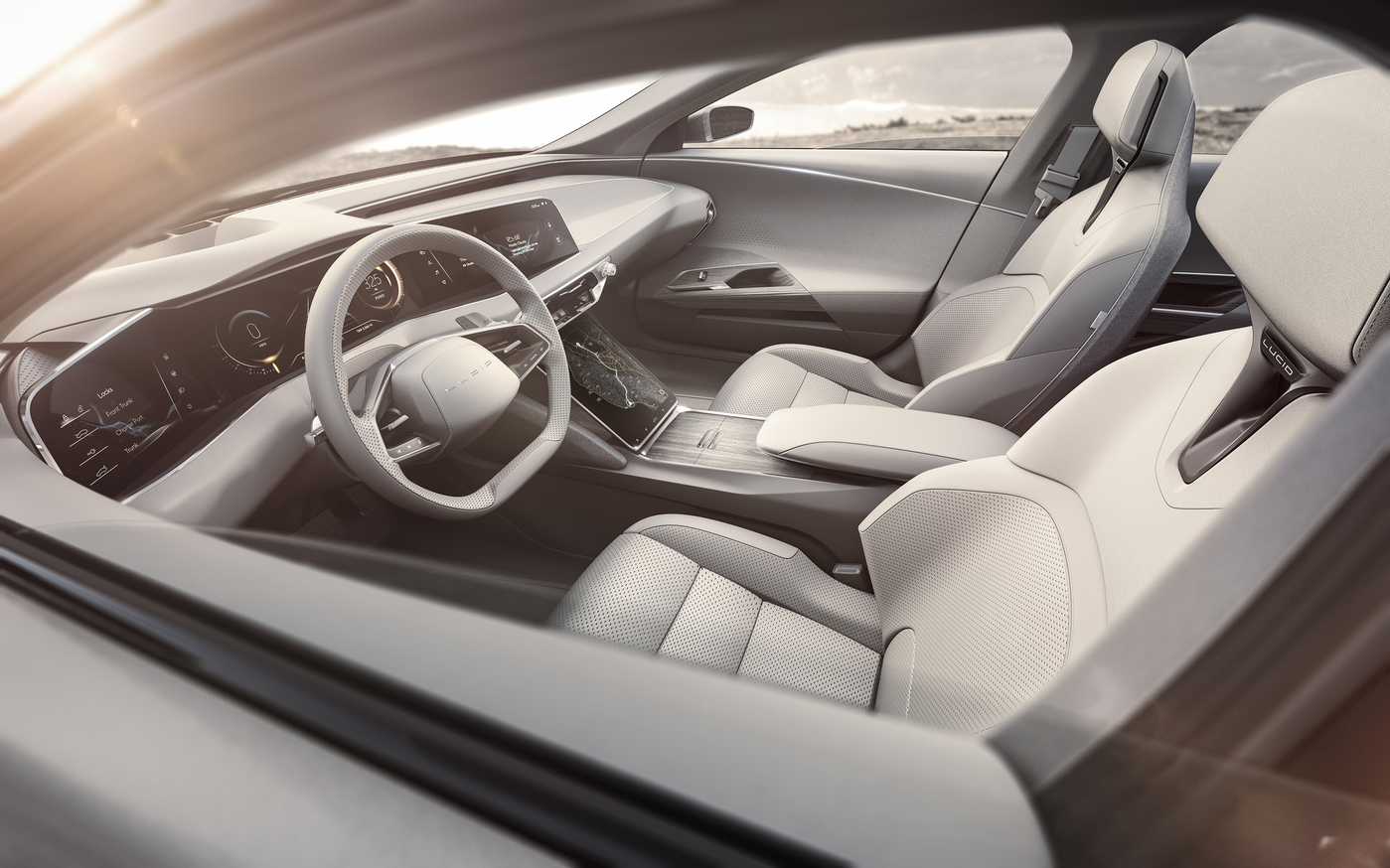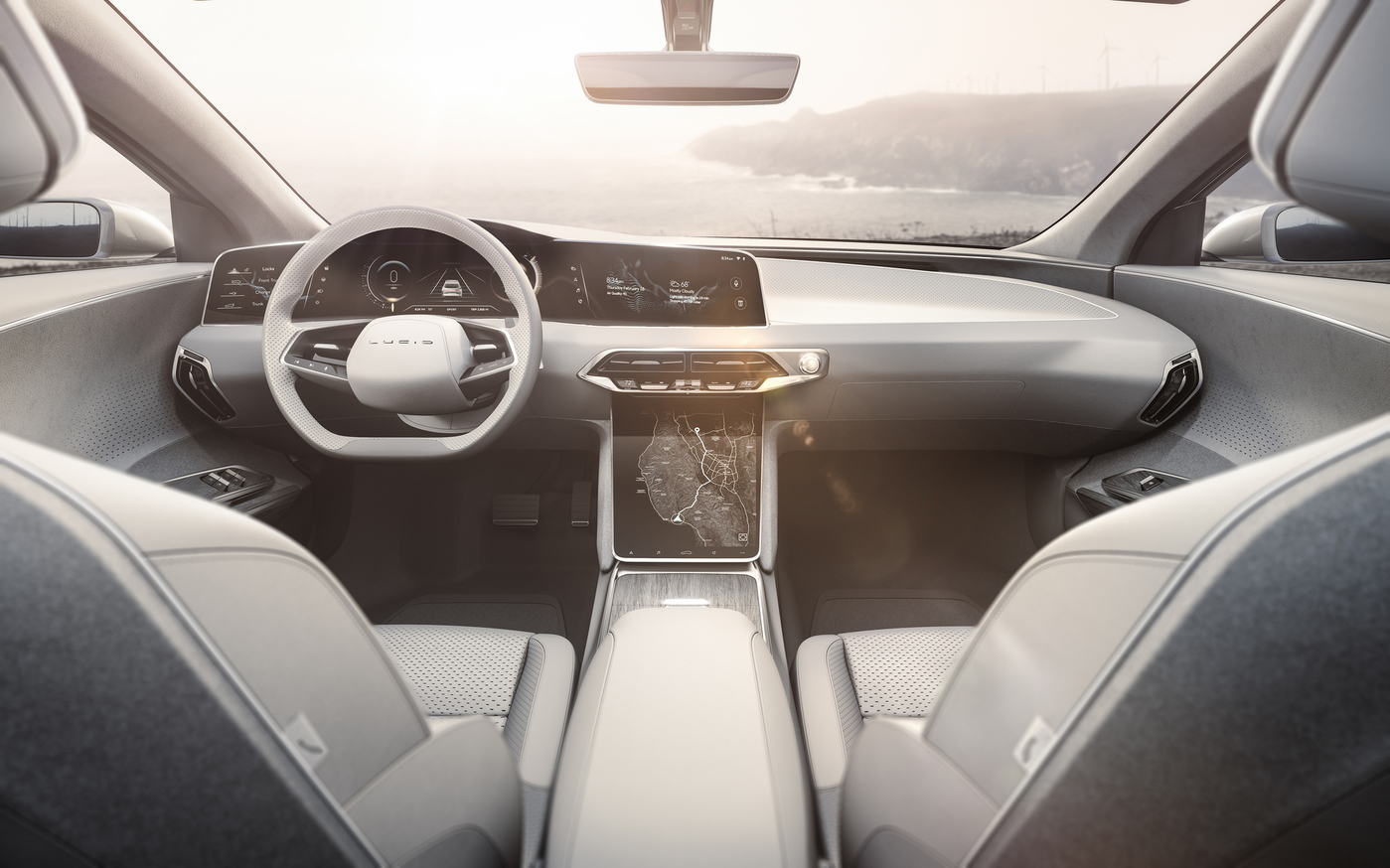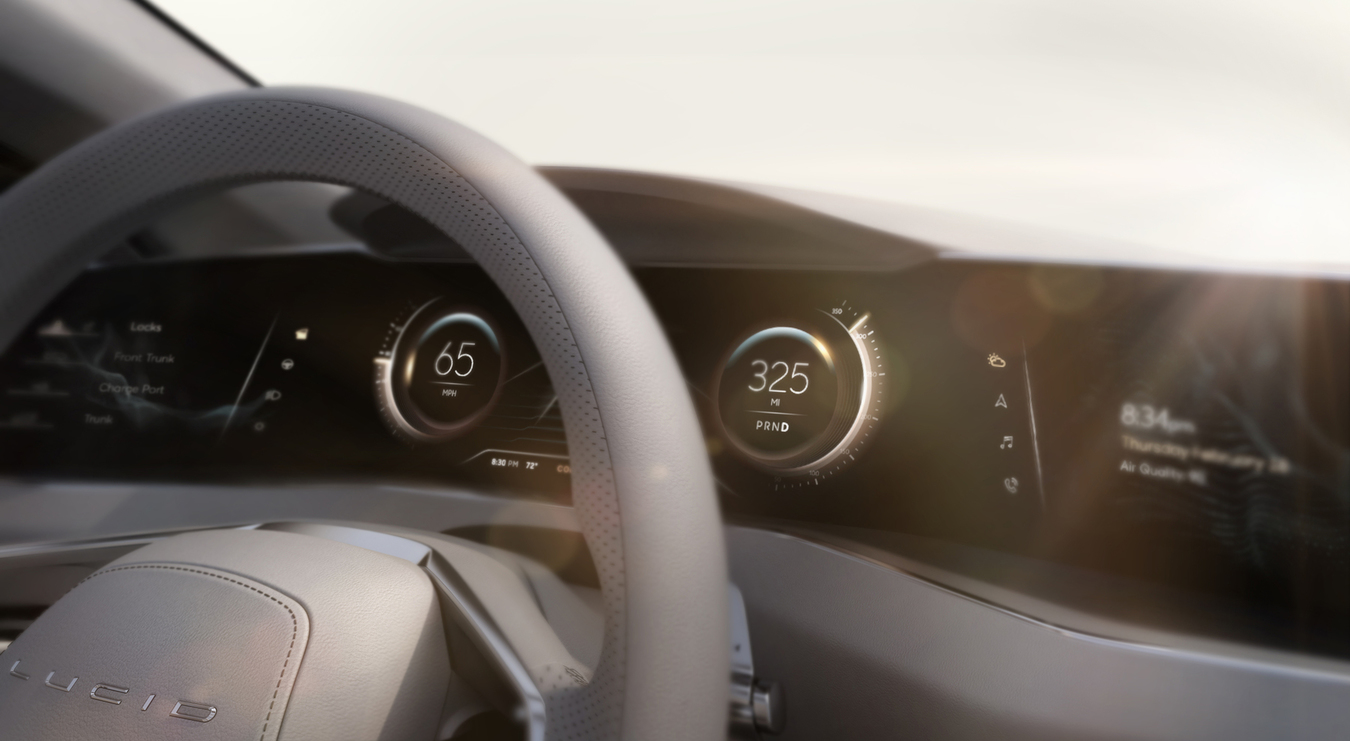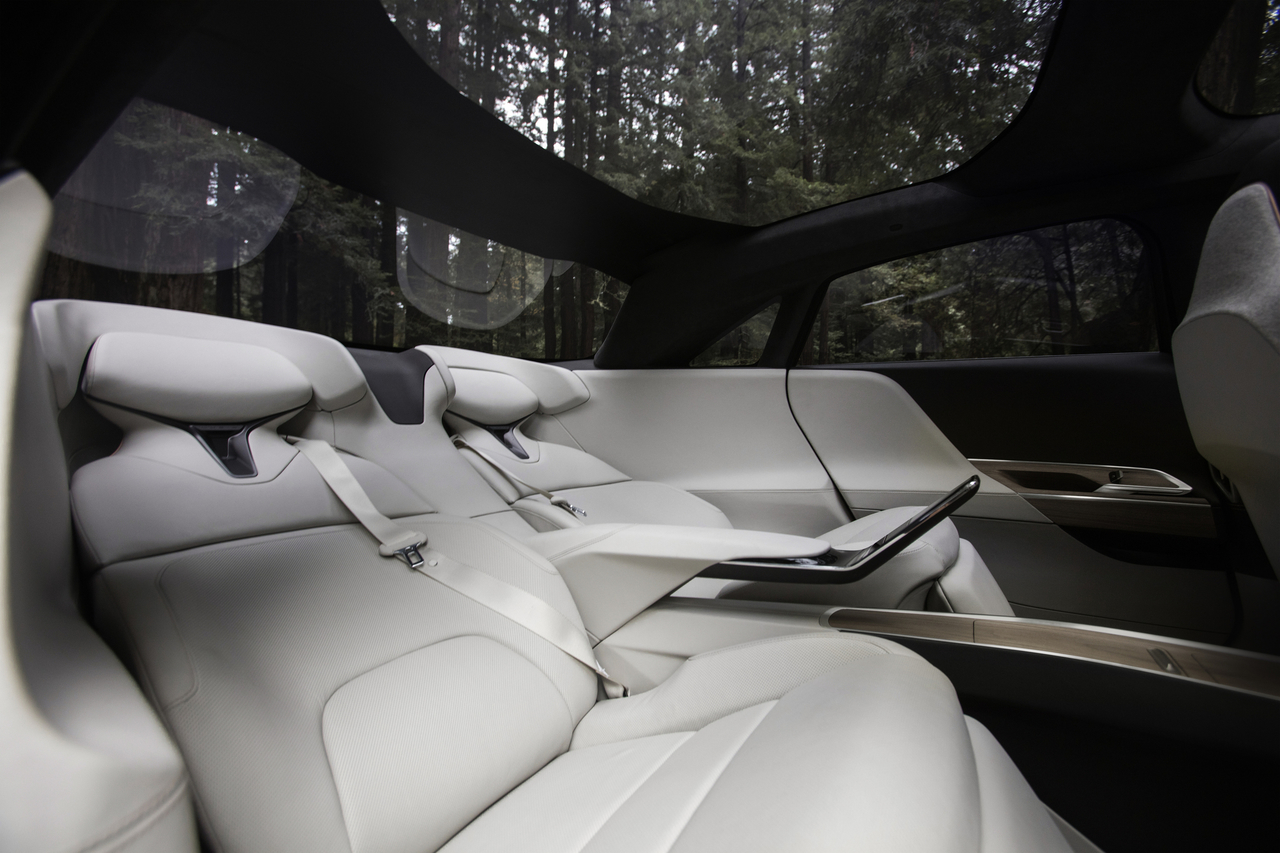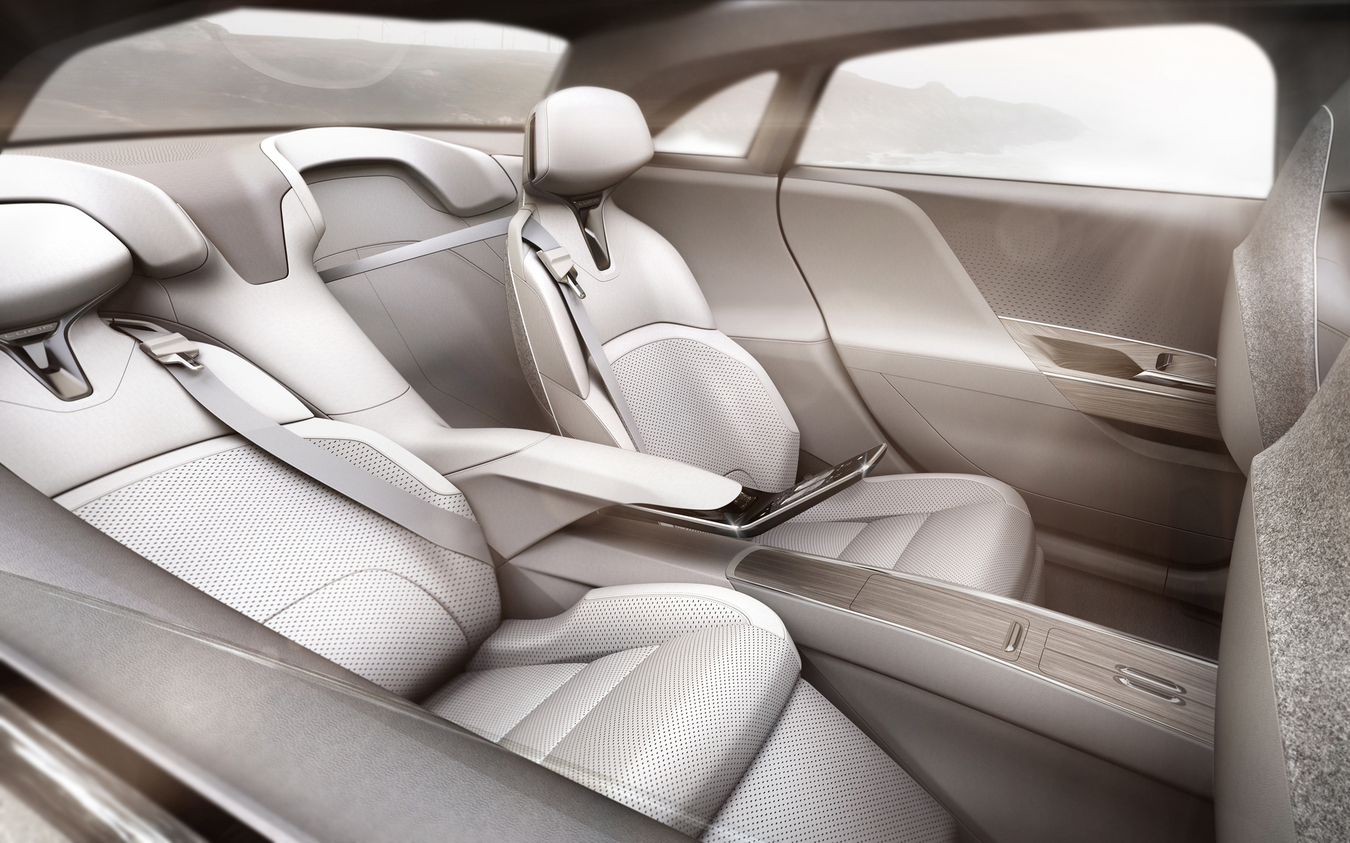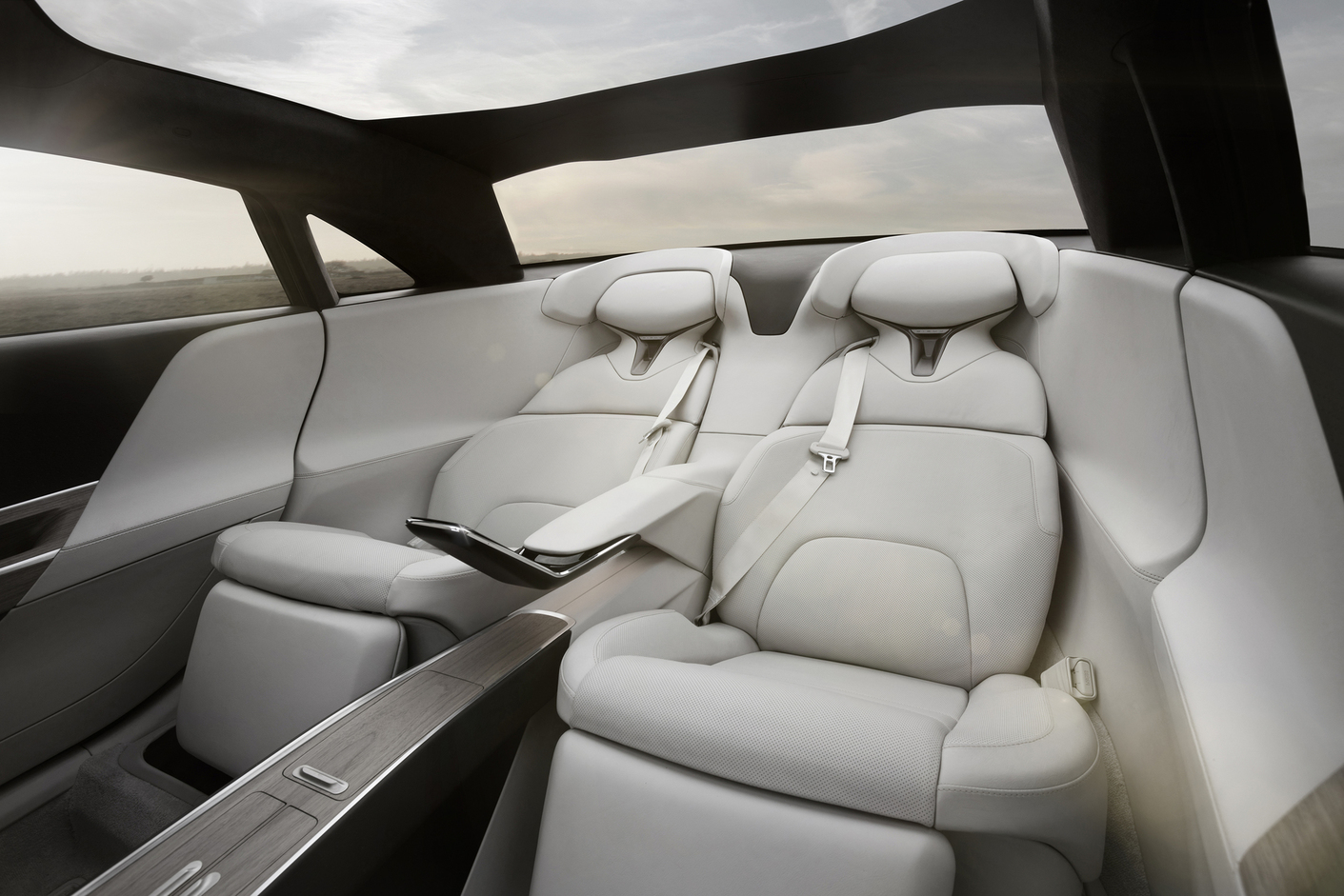Cold weather testing is a vital part of any vehicle’s development process, but for an electric car, it’s especially important. Frigid temps not only make an EV’s battery less efficient, they also inspire drivers to crank up the heater, which saps available power. That’s why Lucid Motors recently took its 1,000-horsepower Air EV to frigid Minnesota, to evaluate how the powertrain performs in the cold. That, and to drift around like a lunatic.
Joking aside, the brand’s jaunt to the midwest allowed it to hone the dynamics of the Air, in its dual-motor AWD system, its anti-lock brakes, and its active suspension. Lucid hopes to create a car that feels alive and responsive, two characteristics that we don’t often associate with big EVs. As for the drifts, you can out all the shenanigans in the video below.
A breath of fresh Air
Every time an electric luxury car debuts, it’s automatically billed as some sort of “Tesla fighter.” Few actually live up to that moniker though, at least until now.
After weeks of teasing, Lucid Motors (formerly Atieva) finally took the wraps off the Air EV, and the brand did so in Tesla’s backyard of Freemont, California. The reveal event gave us our first unobstructed view of the vehicle in the metal, as well as a list of specs that should be eye-opening to even the most close-minded EV critics.
Starting at around $100,000, the Air equips a 100kWh battery pack as standard, but a larger 130kWh option is coming with 1,000 horsepower and approximately 400 miles of range. That’s more power and range than you get in the flagship Model S P100D, and with a 0-to-60 time of 2.5 seconds, the Air is neck-and-neck with its rival in terms of full-throttle starts.
We’ve seen overly ambitious spec sheets before and we’ll see them again, but we’re a bit more keen to hop on Lucid Motors’ hype train because of its development team. The company’s CTO is former Model S Chief Engineer Peter Rawlinson (you may be noticing a trend here), and the rest of the executive crew features vets from companies like BMW, Mazda, and Audi. Furthermore, the firm’s lithium-ion cell suppliers are a couple brands you may have heard of — Samsung SDI and LG Chem.
There’s a lot to like in terms of design here, and with that in mind, let’s take a closer look at the powertrain. The Air’s electric motors are actually integrated with other components on the car to reduce mass, with the front motor bunking with the HVAC and front suspension systems while the rear motor is incorporated with the suspension and transmission. The setup reduces weight, but it also increases cabin volume to S-Class levels by pushing the mechanicals to the perimeter. This gave Lucid’s designers the freedom to cram private jet-style accommodations inside the car, and we think you’ll agree the space was well used.
In addition, Lucid Motors claims the Air is prepped for autonomous driving with tech like long-range radar sensors, cameras, and lidar. Certain features will be live when the car launches, but over-the-air software updates will gradually increase the vehicle’s driverless capabilities over time.
The Air is expected to begin production in 2018 at Lucid Motors’ factory in Casa Grande, Arizona. The facility has yet to be built though, so don’t be too surprised if the trend of luxury EV delays continues here.
Updated 2-10-2017 by Andrew Hard: Added info and video about Lucid Motors’ cold weather testing
